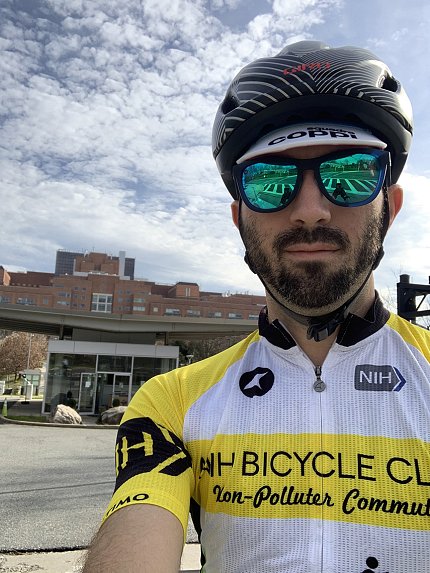Velez’s Lightbulb Moment Leads to Efficient Employee Triage

Back in early March, an NIH-wide email went out advising staff to call the Occupational Medical Service if they had concerns about exposure to Covid-19.
“When I read this, I imagined a phone-based system would be quickly overwhelmed, so I contacted [NIH Deputy Director for Management] Colleen [McGowan],” said Frank Velez, clinical research informatics analyst in NIDDK’s Office of the Clinical Director. “I told her staff about some tools we had available to share that would allow concerned staff to fill out a survey instead of calling. This would then allow us to programmatically triage folks based on their survey responses in order to provide a more efficient follow-up.
“With lots of teamwork from NIAID, Matt Breymaier in my office, OMS and the Clinical Center’s health information management department,” Velez continued, “it is turning out to be a fairly successful idea. Once [the pandemic period] passes, I hope this dataset will also allow us to look at our response efforts and the NIH population symptomology in order to be more prepared for the future.”

Velez says his daily work has not really changed all that much, even as his normal routine has shifted rather dramatically.
“My work is largely the same as a clinical informatician,” he notes. “I’m more busy than usual helping our NIDDK clinicians and a few other [institutes/centers] prepare new protocols and data collection instruments to capture the progression of Covid-19 in their unique populations. There is also a high level of urgency supporting OMS in the triage project I volunteered for after realizing our systems could work to augment their efforts.
“The days are long but very fulfilling both personally and professionally,” he concluded.
“I still do a virtual bike commute each day. That ride, being outside, and eating lunch with my colleagues are what I miss the most. Overall, I’m thankful my wife and I can both work remotely, that my family is healthy and that I’m able to contribute to the NIH mission in these extraordinary times.”—Carla Garnett
